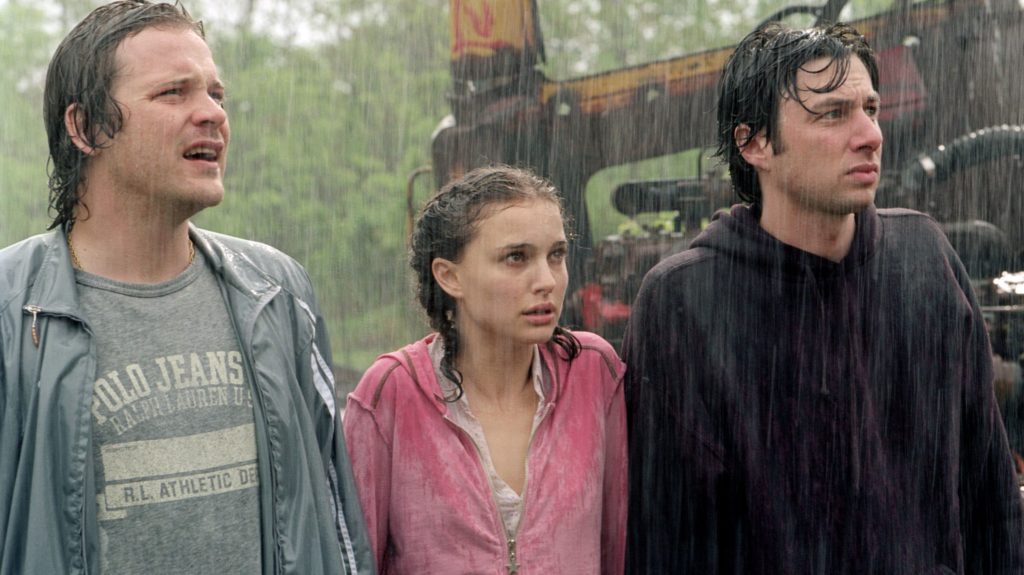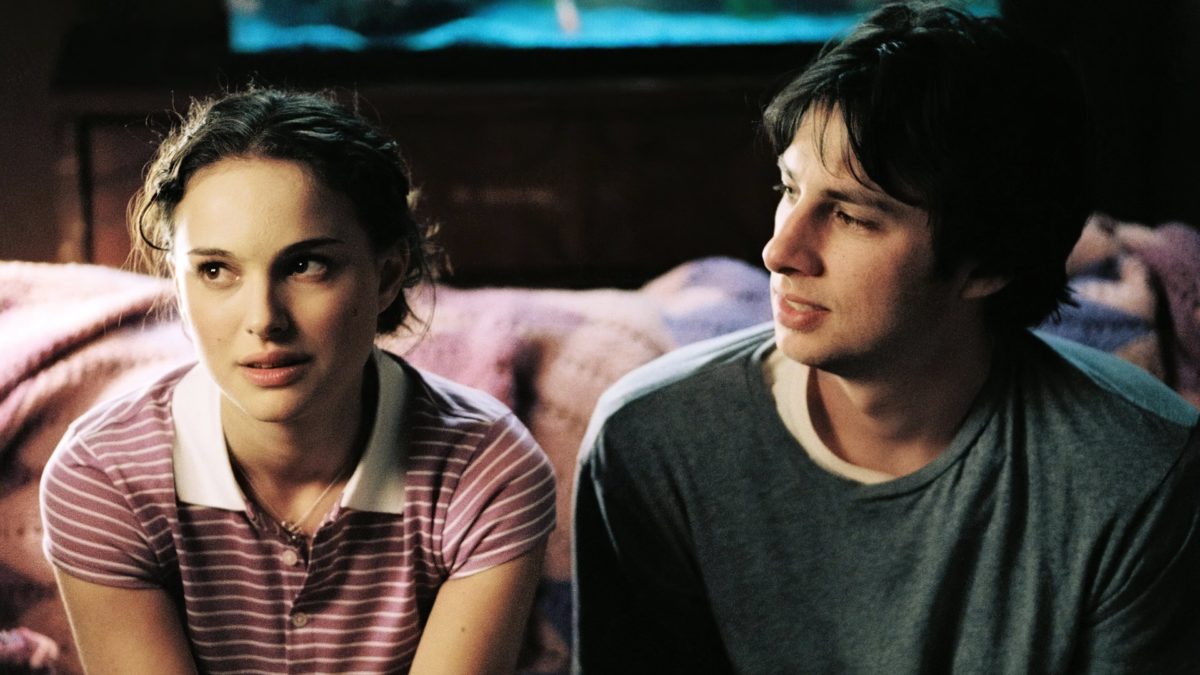You gotta hear this one song, it'll change your life
Garden State’s reputation has fallen out of favor in the 18 years since its release, and understandably so. Zach Braff’s navel-gazing sad sack of a hero, Andrew Largeman, is a proxy for every white, privileged, twenty-something who’s too angsty to adjust to adulthood. Natalie Portman’s Sam is cinema’s peak manic pixie dream girl, a mythologically pure and whimisical and passionate quasi-human who exists to help Braff understand life better. The set design and direction are fussy, the script episodically aimless, the soundtrack the poster-child of snoozy indie rock that was inescapable in the 2000s.
There’s really no reason to like Garden State at all, except that it’s brilliant.
This movie spoke to a generation of middle-class suburbanites for a reason. As our parents over-pressured and over-medicated us, the ennui crept in. Braff hits just the right tone of heart-on-his-sleeve earnestness and goofy smirk at the absurd and stupid world around him. The film’s message, achingly and romantically built towards, is that it’s okay to feel sadness; it grounds and grows us; avoiding it shuts out every other meaningful feeling, too. (It’s basically the same point Inside Out made a decade later when we started having kids.)
In addition to Braff and Portman, Peter Sarsgaard is hilarious as the thematic counterpoint — what happens when someone insulates themselves in their whims to the point that they become toxic and pathetic and lose sight of reality. I’m glad he gets a redemptive moment at the end of the movie, at least.
The story is, indeed, episodic, embracing and discarding characters and thoughts on a scene-by-scene basis, often with little direct purpose except to build out a larger picture of why Largeman might feel so trapped in his hometown but also so empty without it. No easy answers.
The soundtrack is easy to pick on and a bit retroactively bland, but was quite groundbreaking at the time: It, along with the TV show The OC, was one of indie rock’s beachheads into the cultural consciousness. It’s obvious inspiration is The Graduate (a film visually quoted multiple times here) — and while Garden State’s use of The Shins is not as monumental as The Graduate‘s use of Simon & Garfunkel, it’s still a terrific bit of soundtrack design.
The one indefensible portion of the film is its soggy, self-serious ending that over-inflates the movie’s and protagonist’s sense of importance while leaning on a few unsatisfying, herky-jerk plot turns.

The film does some nice stuff with visual texture to evoke strong feelings. There’s a fun shot where Largeman’s clothes blend in with the wallpaper, further emphasizing his feeling of smallness and emptiness. A hazy shot of Natalie Portman swimming shows us Sam’s allure in Largeman’s eyes (and launched a thousand Portman crushes). This visual sense separates it a bit from the pack of lower-rent, naturalistic indie films of the time.
So, yeah, Garden State is easy to knock on for so many reasons, some of which are perfectly valid. It’s certainly not a film to all tastes. But for those of us who feel some connection to its themes and characters, no movie tells this story in quite the same evocative way.
- Review Series: Top 100 (2009 List)
Is It Good?
Very Good (6/8)
Awards, Honors, & Rankings
- Top 100 Movies (2009 List) - #47 / #52
Dan is the founder and head critic of The Goods. Follow Dan on Letterboxd. Join the Discord for updates and discussion.

